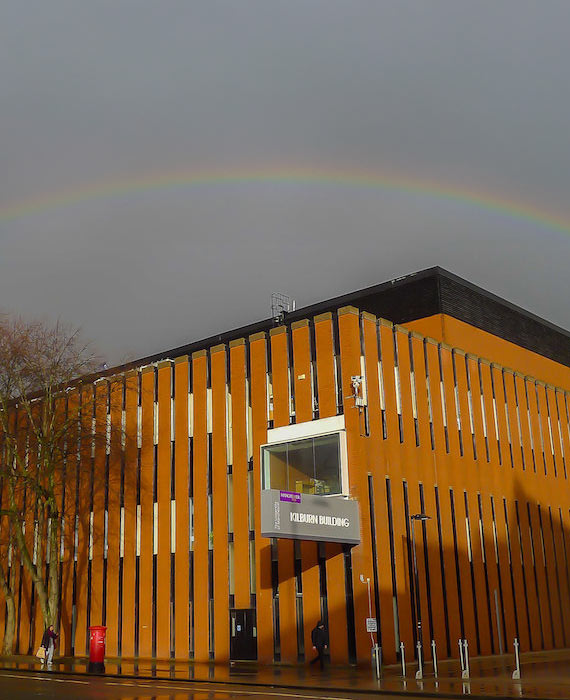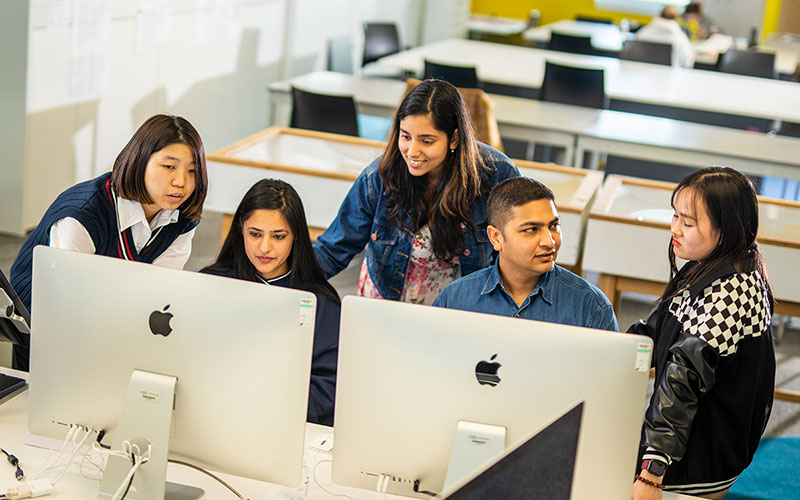Enabling potential, fostering prosperity
The International Science Partnerships Fund (ISPF) puts research and innovation at the heart of our international relationships.
It supports UK researchers and innovators to work with peers around the world on the major themes of our time: planet, health, tech, and talent.
The fund is managed by the Department for Science, Innovation and Technology and delivered by a consortium of the UK’s leading research and innovation bodies, which include: UK Research and Innovation (comprising the 7 research councils, Innovate UK and Research England), the UK Academies, the British Council, the Met Office, the National Physical Laboratory, the UK Atomic Energy Authority, and Universities UK International.

What the fellowship offers
For each fellow who will be employed at The University of Manchester, the scheme provides:
- £27,000 bursary for the 9-month duration of the fellowship project.
- £7,500 research-related expenses (consumables, small equipment, travel and subsistence within the UK, publication costs, and other expenses related directly to the research project).
- £15,300 stipend for dependent (e.g., childcare) support and accommodation support.
- Support for other costs, including:
- IELTS exam fee.
- Return economy-class travel from home country to the UK.
- UK Visa and National Health (NHS) surcharge costs.
- Ad hoc costs (e.g., heavy baggage).
Available fellowship projects
Enhancing environmental resilience through AI-driven analysis of unstructured data
We are looking for three early career fellows from the Philippines, who will be working on projects centred on the theme of Resilient Planet, focusing on interdisciplinary research on the three topics outlined below.
The projects, which will run for 9 months, will investigate how artificial intelligence (AI)-based approaches for analysing unstructured data (i.e., large amounts of text) can be applied to:
- Agri-tech and health (food systems): the understanding of food production and consumption-related information in order to make consumer diets healthier and more sustainable;
- Biodiversity conservation: the extraction of scientific knowledge that can inform biodiversity conservation programmes;
- Risk reduction from extreme weather: the real-time detection of impacts of natural disasters on citizens based on social media content.
For each of the above projects, we will recruit one fellow with relevant research experience in the areas of AI, natural language language processing (NLP), text mining, machine/deep learning or data science.

Application process
To apply for a fellowship you must:
- Be a permanent resident of the Philippines.
- Be an Early Career Researcher. Early Career Researchers (ECRs) have completed or are close to completion of their PhD, potentially waiting for their final viva voce examination, which must be passed prior to taking up the award. ECRs will not have held a permanent academic post or a permanent post with a research-related element, or one which allowed them to supervise PhD students or submit research grants as a principal investigator. Time spent in teaching-only roles or academic related roles does not affect ECR status, provided no research element was part of the role. If you do not hold a PhD but have research experience equivalent to a PhD holder and work in a field where a PhD is not a prerequisite for established research activity, you can still be considered eligible. Participants from for-profit organisations cannot be funded.
- Not be currently in receipt of financial support or funding towards any other programme in the UK from any other sources.
- Meet the English language requirement of The University of Manchester: an overall IELTS score of 6.5.
- Have a background in Computer Science (or a relevant discipline) and a proven interest in the research project they are applying for. They should be willing to demonstrate future contribution to capacity-building and socio-economic advancement through the benefits achieved after completing the fellowship programme.
- Demonstrate a plan and a passion to engage other early career researchers from their home country.
- Agree to maintain contact with the British Council for purposes of monitoring and evaluation during and after their fellowship.
This fellowship opportunity is now open for applications and will close on 15 May 2025. Please submit your application by accessing the link below which will lead you to a University of Manchester job page where you need to provide the following:
- An academic CV (maximum of 2 pages).
- A cover letter (maximum of 3 pages) answering the following questions:
- What is your motivation for applying for this fellowship and how will it benefit your career development?
- Among the following three research topics, choose the one that you wish to apply for: (1) Biodiversity conservation; (2) Agri-tech and health (food systems); and (3) Risk reduction from extreme weather. How do your skills, experience and research interests align with your chosen topic?
- What outcomes from the fellowship do you envision and how will these outcomes contribute to capacity-building or socio-economic advancement in the Philippines?
- How will you engage other early career researchers from the Philippines, during or after the fellowship?
- The names and contact details of two referees who can confirm your suitability for the fellowship.
The provisional timeline for the application process is as follows:
- 15 May 2025: Applications to the fellowship opportunity close.
- Late May 2025: Invitations for interviews to be sent out.
- Early June 2025: Panel interviews to be held.
- Early July 2025: Offers given to selected fellows.
- September-October: Fellows arrive in the UK.
- October-November 2025: Fellowship projects start in the UK.
About The University of Manchester
Our research in computer science and AI
The University of Manchester is home to the Department of Computer Science, one of the first departments of Computer Science in the UK, which is world-renowned for being the birthplace of modern computing. One of its core research themes is AI, within which the Machine Learning and Robotics group, and the Natural Language Processing and Text Mining group develop innovative research. The NLP and Text Mining group, in particular, are known for their world-leading expertise in Information Extraction, which is core to the fellowship topics outlined above. Importantly, our Department has a track record of publications describing our research on the development and application of AI-based approaches to domains relevant to biodiversity, food science and social sensing (i.e., the analysis of social media content). We have also established a network of collaborators working on topics that fall within environmental resilience; this network will be accessible to each of the fellows.
We anticipate that even beyond the fellowship, the collaborations and connections developed by the fellows while working in Manchester will continue and will lead to follow-on work such as student co-supervision, research visits and joint grant applications focussed on ODA-compliant research topics.

Contact information
Informal enquiries can be addressed to Riza Batista-Navarro - Email: riza.batista@manchester.ac.uk
Please note that online applications must be submitted through the link provided above (see the How to apply section) and will not be accepted by email.

